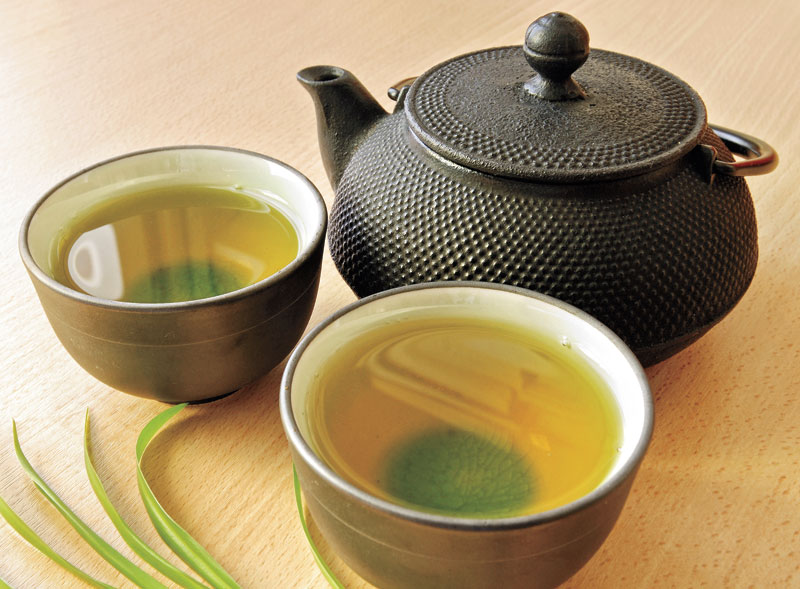Tea Time—All the Time. The Health Benefits of Tea
By Mary Kay Kleist
January 2019 View more Health & Fitness
Tea is one of the most widely consumed beverages in the world. From black to white, and Oolong to herbal teas — the flavors and varieties seem endless. The tea you choose to toast can optimize your health.
Green Tea – Antioxidant Agent
Green tea tops the list as the healthiest choice. It contains the highest concentration of powerful antioxidants called polyphenols. These fight free radicals. Free radicals are damaging compounds in the body that change cells, damage DNA, and even cause cell death. Many scientists believe that free radicals contribute to the aging process, and can create health problems, like heart disease and cancer. Polyphenols in green tea can neutralize free radicals, and may help prevent some of the damage they cause.
Besides the high amount of antioxidants, studies have shown that green tea can help reduce stress, lower LDL cholesterol, fight gum disease, and reduce tooth decay. Drinking green tea also helps your metabolism rate.
One of the healthiest options is Matcha Green Tea. “This will get us energized, focused and ready to go,” said Jordan Scherer of Adagio Teas in Naperville. He says drinking one cup of Matcha is equal to the health benefits of approximately ten cups of green tea. Matcha is stone ground Gyokuro green tea. It is rich in insoluble fibers and helps boost alpha wave activity in the brain.
However, tea leaves and herbs contain active chemical substances which may interact with certain medications. “Green tea, for example, has been shown to react negatively with antibiotics, beta-blockers, blood thinners, and chemotherapy. For these reasons people should take herbs with care and ask your pharmacist if tea interferes with their medication, “ said Registered Dietitian Toni Havala of Edward Hospital.
Ginger Tea – For Better Digestion
Ginger tea works wonders on your digestive system. It helps process your food better and soothes your stomach if you’re sick.
Peppermint Tea – A Brain Booster
Smelling the mint stimulates the brain’s arousal system and helps you pay attention.
Black Tea – Stress Reliever
Studies have shown that people who include black tea in their diets had lower levels of the stress hormone cortisol, and were more relaxed and able to complete difficult tasks. Research shows it reduces heart attack, stroke, and death from cardiovascular disease in women. It may also help prevent clogged arteries, improve blood vessel functioning, and lower blood pressure. Black tea also contains fluoride to help fight cavities.
Chamomile Tea – Sleeping Aid
Drinking chamomile tea before bed is good for people who suffer from anxiety, as well as for people who want a restful night’s sleep. Chamomile also works as a sedative.
Hot or Cold?
Tea contains the same amount of polyphenols whether it’s hot or cold. But if you need that caffeine boost, go for the hot tea. “A 6ounce cup of brewed hot green tea has 26 mg of caffeine, while 16 ounces of iced green tea only has 15 mg, “ said Havala.
Fresh Brewed is Best
Bottled teas have lower amounts of polyphenols. Havala says you would have to drink 20 bottles of tea to get the same benefit in one cup of fresh brewed tea. And don’t forget the sugar loaded in them. “A medium sized sweet tea at a popular fast food chain contains a whopping 11 teaspoons of added sugar,” said Havala.
You don’t need the added sugar for great taste. “Most customers are surprised by the amount of flavor that fresh full leaf tea yields,” said Scherer. He says all teas are healthy, but you need at least four cups a day in order to truly reap the health benefits.



